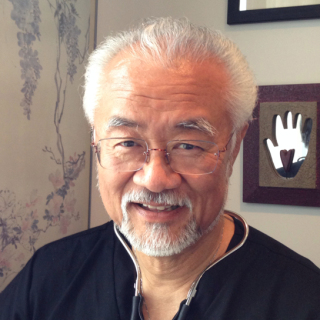As essentially all of our colleagues realize, cardiovascular disease remains the leading cause of death in developed countries, though COVID-19 this year made a run to be second runner-up after cancer. And even COVID-19 turns out to be a fundamentally endothelial disorder wreaking havoc in afflicted organ systems.
Over the last several decades, there has been an inexorable rise in the incidence of diabetes worldwide as "lifestyles" (a euphemism for "overfed with cheap calories" and "under exercised with more sedentary and less self discipline") devolved. And it turns out that most with diabetes don’t die directly from diabetes, but from the cardiovascular complications of diabetes. Thus there has been a convergence of cardiovascular disease and diabetes as the clinical overlap became increasingly evident. As a clinical trialist for decades, I have been privileged to participate in early drug trials testing whether anti-diabetic agents could alter the cardiovascular outcomes of diabetic patients. Those early efforts were fraught with frustration as no significant benefit could be identified from the diabetic drug classes being investigated.
Then about six years ago, the dike was breached by the sodium glucose co-transporter (SGLT2) inhibitor class of agents, and then, a bit less robustly, by the glucagon-like peptide 1 (GLP-1) agonists. These drug classes have now been integrated into global guideline mediated treatment protocols (GMTP) and have impacted clinical care by cardiologists, as well as endocrinologists and primary care health providers. The approved SGLT2 inhibitor agents, empagliflozin, canagliflozin, ertugliflozin, and dapagliflozin, have shown similar diabetic and cardiovascular outcome data. Managed care environments, given the weight of benefit evidence and GMTP validation, will need to increasingly adopt their use despite their cost.
As we learned from prior ACC and AHA conferences, the benefit of these SGLT2 inhibitors for classic MACE also extend to patients with reduced ejection fractions. Now with the most recent data, there is improvement in chronic kidney disease, even in patients without diabetes, independent of their glucose-lowering potential.
However, as we just learned from the DARE-19 trial presented at ACC, SGLT2 inhibitors, at least dapaglifozin, did not show statistically significant benefits in the complications of COVID-19, though they trended in the positive direction.
At the end of the day, as with statins, beta-blockers, RAAS interventions, the SGLT2 inhibitors have joined the portfolio of cardiovascular interventions that have no specialty boundary that limit their use. As such, health care providers of all specialties, and especially in primary care, will need to be comfortable with the indications, use, and potential adverse effects of this class of pharmacologic agent.
And, in my estimation, another lasting takeaway from the 2021 ACC Scientific Session is that the COVID-19 driven requirement for having an at least partially virtual meeting likely will persist into the future well after this pandemic has been controlled. Although in-person meetings for scientific and professional exchanges are valuable to our academic colleagues and those seeking new opportunities, it is likely that the busy practicing professional has found that virtual or hybrid meetings provide 80–90% of the knowledge benefit with 80–90% reduction in the hassle of time away from one’s practice, the costs of travel, food, and lodging, and the ability to actually see and hear the results of key research, without having to rush from one presentation to another on the other side of the conference center and have to peek over the shoulders of taller colleagues who are also standing in the back of the room. We’ve all been there.
This means that curated platforms, such as Doximity, will and should play a greater role in the future dissemination of scientific knowledge and further enhance their role in the continuing education of all of us. We, and most importantly, our patients, will benefit from that job done well.
Image by pathdoc / Shutterstock






